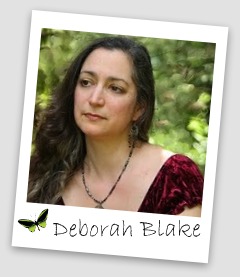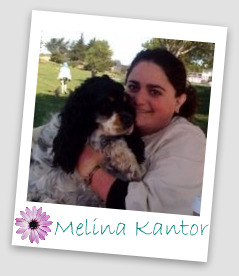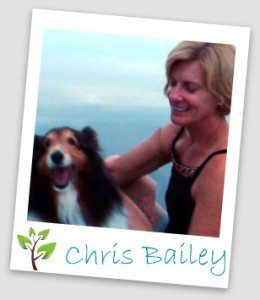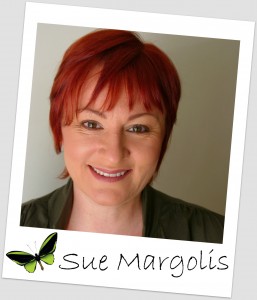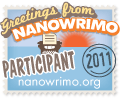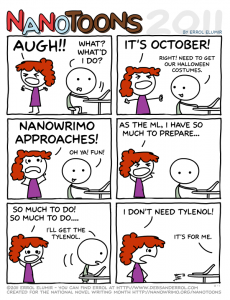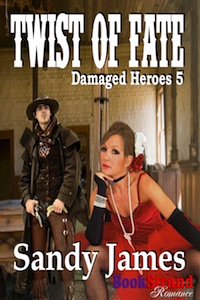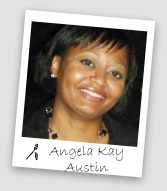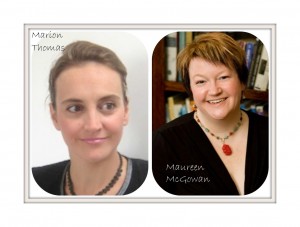 ~ By Marion Thomas and Maureen McGowan
~ By Marion Thomas and Maureen McGowan
As part of the Chick Lit mentorship program, Maureen McGowan has kindly accepted to be my mentor. She has been fantastic and taught me so much… and she took time to answer a few questions for the benefit of all.
Q: Congratulations on the book deal, can you tell us more about it?
A: I’m still under a gag order, but I do have a new Young Adult trilogy coming out starting in 2012. The books are post-apocalyptic-set YA thrillers and the first book is called Deviant. I wish I could say more, but suffice to say I’m very excited about it.
Q: You started in a totally different genre (chick lit, romantic comedy), why did you switch? Do you think you will revert to this style of writing later on in your career? Would you recommend to a beginner to try several genres?
A: I can’t really hold up my experience (I’ve written category romance, chick lit, women’s fiction, urban fantasy, young-skewing YA and darker YA) as a “how to” manual for beginners, because I think some of my choices were affected more by what was hot at the moment than they should have been. And I was too late to catch trends several times… But I do believe that, unless you only enjoy reading one genre, there’s no reason why a writer can’t try more than one genre.
So yes, by all means, if you love many genres, then dabble until you find what works best for you. It generally takes writing more than one book to learn the craft so why not explore your voice and your limits while you have the chance? (That is, before you have an established career and other people are invested in what you write next.)
But don’t write in a genre you don’t like or respect just because it’s hot. Anyone who reads it will be able to tell.
For me, I found my writer’s voice for the first time when I started writing humorous women’s fiction. My first chick lit style manuscript got a lot of attention from editors and agents, but when it didn’t sell right away I felt lost for a while and quite honestly tried a few things that weren’t me. And abandoned several half-finished projects. When I was offered the chance to write the Twisted Tales series (for readers ten and over) I was intimidated, because I’d never written anything without swearing or sex (smile), but I loved writing Cinderella: Ninja Warrior and Sleeping Beauty: Vampire Slayer and discovered how much I enjoy writing action/adventure. I’m taking that love into my next projects.
Q: Did the wittiness in chick lit help you nailing your YA voice?
A: Hmmm… Maybe.
When I was writing chick lit I discovered some stylistic techniques to help instill wittiness and sarcasm into my character’s voice. And also how to write very tight prose and trusting the reader to figure out what the character’s feeling without a lot of introspection, (like you often find in the romance genre). And I also learned (a lot) about writing in first person, which is a challenge all onto itself.
Since I’m writing my new YA books in first person those were valuable lessons. But the humor I used in the Twisted Tales series is both sweeter and sillier than in my adult fiction, and my upcoming post-apocalyptic thriller trilogy doesn’t have much humor at all. Although I wrote it, so there’s probably some. 😉
Q: What’s your creative process? Do you follow similar stages for each book?
A: Every book has been slightly different for me, but at this point I do dive into each new project with a plan. The “plan” is to develop the idea and overall story enough to explain it to my two main critique partners. Then I work on an outline, usually using some kind of loose structure—like 3 act plotting or the hero’s journey, whatever feels right at the time—but unless I’m forced to do a full synopsis (for an editor or to sell a book) I often give up on finishing the outline and start to write. I try to write the first draft quickly—over 6-8 weeks—without going back too much to edit. I’ve learned that for me, editing as I go wastes time, and/or makes me more reluctant to make major changes and cut sections later.
While this is the “plan”, I often get lost while writing the first draft and have to stop to do more plotting/planning/brainstorming. At this point I rely on my friends to remind me that I always think my book sucks at this stage.
When I’m finished my first draft the real work begins. I revise—a lot. I try to do it in passes, focusing on the story and pacing first, then characterization, then setting/world details, then the actual prose… but I have difficulty skipping over really badly constructed sentences, so the “words” do get massaged on each pass.
Once I’m happy with the manuscript on screen, and I’ve received feedback from my critique partners, I do several passes of editing on the hard copy. Often rewriting sections almost completely by marking up the pages. This stage feels highly inefficient, but it’s amazing to me how much sloppy writing and telling and repetition and unnecessary words I notice on the printed page versus on my computer screen.
Q. Did you come up with the concept of “Make your own adventure”?
A. No, but my Twisted Tales series doesn’t follow the “old school” choose your own adventure format, either. The idea for the series was actually brought to me by the editor for the project who told me I could tackle the books however I wanted as long as there were three decision points. When I made the decision for each book to have only one ending (to satisfy the fairy tale happy ending promise) I didn’t realize what a complicated task I was giving myself. Writing alternate paths, which loop around to the same place, was a serous challenge!
Q: Do you think there is such thing as a “Canadian Voice”?
A: Interesting question… I’ll bet there have been Phd theses on this topic and I’m not qualified to write one, but I’ll offer my opinions. J The Canadian publishing industry has certainly given the world a lot of fabulous literary fiction authors, eg. Margaret Atwood, Michael Ondaatje, Robertson Davies, Yann Martel, Carole Shields, Alice Munro to name just a few of my favorites… But Canadians are so culturally diverse, that I’m not sure whether, even in the world of literary fiction, that there’s an identifiable Canadian voice.
There are also many popular and/or genre fiction authors in Canada: Kelley Armstrong, Robert Sawyer, Mary Balogh, Jo Beverley, Guy Gavriel Kay to name just a few, but in popular fiction the “Canadian voice” is obscured even further, mostly because most popular fiction is published in the US. (Except for Harlequin… but most people don’t even realize that Harlequin is a Canadian company.)
Canada is a huge country geographically with a comparatively tiny population, so to succeed in popular fiction and sell enough copies to earn a living, one has to please the American reader. Therefore most Canadian authors shooting for the commercial slice of the market tend to hide their “Canadianness” and fake being American. J (Notice the spelling in this post. I’ve trained my fingers to “misspell” many English words. J)
Q: For grasshoppers like me, the word “worldbuilding” sounds overwhelming and daunting, could you give us a simple definition of it? How do your build ‘your’ world?
A: There are whole workshops and courses on this topic, but I think for me it’s about making the decisions and knowing enough about the world your characters live in, whether it’s imaginary or contemporary, so that you can naturally drop in the right words and references and vocabulary without including swaths of description or explanations.
I usually have too many explanations in my early drafts and have to work hard to either simplify the “rules” of my world or discover ways to show the rules so the reader absorbs them without having to read an explanation.
Q: Do you have CPs? How did you get to know them? How do you work together?
A: I met my CPs in the first novel writing class I took. The group has tightened over the years and asking a few members to leave us was one of the most difficult things I’ve ever done. (Worse than having to fire people in my previous career.) But I think if you’re serious about writing and your career, you need to be able to separate the friendship from the critique partner side of your relationships.
Your critique group, if you use one, can play a key part in developing your career. The group’s effectiveness has to trump being “nice” or avoiding hurt feelings. Harsh as it sounds, it has to be about the work first and friendships second. Easier said than done.
In the early days, our group met weekly and generally each member brought a scene. At first we read during the meeting, then we started sending the scenes out by e-mail ahead of time and single scenes changed to chapters, then multiple chapters. It was a lot of work, but that weekly deadline and accountability is likely what was responsible for me finishing my first manuscript.
Now that we’re more experienced and dealing with deadlines our working relationship has changed somewhat. First, we no longer find it useful to critique scene by scene. We all know the nuts and bolts of writing. We all know how to craft scenes. Now we usually critique entire books, either all at once or in a few chunks, and we only meet when/if someone has work. Our group’s schedule is now driven by our deadlines. But we still meet face to face most of the time.
Q: When did you start building your platform? Can you identify the major steps for us? What made a real difference?
A: I don’t think it’s essential for aspiring fiction writers to build a platform before they sell and some writers focus too much on this at the expense of what really matters—writing great books.
Unpublished writers should concentrate more on their writing and honing their craft than worrying about a platform. An agent or editor won’t sign you or publish your novel because you have 3,000 facebook friends or a pretty website. In fact, unless they already love your book, they won’t even look.
I did, however, co-opt your question to use as a prompt for a recent blog post where I expanded on this more and explained what I did. J http://drunkwritertalk.blogspot.com/2011/11/building-platform.html
Q: Just like me, you used to work in finance? How did this background help you in your writing career?
A: My background in finance helped me understand the business side of publishing. However, I’m glad that I’ve been able to shut off that side of me at times. Otherwise, I think I would have quit writing toward publication long ago. The amount of work and time and effort it takes to succeed in the publishing industry is enormous, and the odds of earning a living are slim. So I think we need to be slightly insane or wear blinders to do what we do. I’m glad I can tell the practical side of myself to shut up. J
Q: I find your take on self-publishing very interesting, can you explain why you have decided not to self-publish your earlier books? What would be your advice to beginners like me who have only a few WIPs under their belts?
A: I think everyone has to figure out what’s right for him/her. But I’m glad that the lure of self-publishing wasn’t as strong five or six years ago as it is now. I’m glad because I think I might have gone that route and regretted it.
I don’t think the first few books I wrote were strong enough to be published. I thought they were at the time and they did pretty well in some contests and got requests for the full from editors and agents and “good” rejection letters, but reading that work now… Let’s just say I’m glad that strangers aren’t judging my ability to write based on those “learner” novels.
And for later manuscripts, ones that I do think might still be published some day, I had bad timing. The market ebbs and floes and I think it can be better to hold onto something and catch a rising swell, than to dump it into a wave just as it crashes—regardless of whether it’s traditionally published or self-published. (Apologies for the slightly mixed metaphor.)
Bottom line, I’m glad I still have those manuscripts on my hard drive rather than poorly published with bad numbers.
The jury’s still out as to whether I’ll consider self-publishing one or all of these manuscripts in the future, but I’m glad I still have choices.
Every aspiring writer should learn about the market and all the options, consider her individual goals against those options and then decide for herself. I would just advise a newer writer not to leap into publishing his or her first or second book. At least not without trying the traditional route first. If your books really strong, you’ll get interest from agents and editors and you can always say no to them and go it alone if they offer, but at least you’ll have some objective evidence that you’re ready.
No one has a crystal ball, but at this precise moment (things are changing so quickly I might have a different opinion next week) I still think that while the odds of having a break out type book are long no matter which way you go, the odds right now are still better with the bigger publishers.
Q: In your opinion, what makes an agent a ‘good’ agent? Do you think a writer “needs” an agent in those days of self-publishing and smaller publishers accepting unagented manuscripts?
A: I think whether or not you need an agent depends on your career aspirations and how you want to be published. If you want to self-publish or publish only with a small or micro-sized publisher, then sure, you can do it without an agent, but to play in the big leagues, which right now is still the big 6 (plus Amazon), you need a good agent.
One person’s good agent is another’s bad agent. One size does not fit all. But a good agent should love your work. They should be your biggest fan, your number one cheerleader and advocate. They should run interference between you and your publisher to decrease the chance of conflict between you and your editor or publicist or the design department—all the people who affect your career. They can be the bad guy if you hate your covers. They can be the strong arm who tells the publisher you’re worth more money or better terms than they’ve offered. As I mentioned, one size does not fit all and it’s also possible that one size won’t fit for your entire career… It’s important for authors to reassess the relationship and make sure it continues to make sense.
Q: Was there a moment in your career when you felt your writing was now publishable?
A: I think after I finished my third book. Partly because I could tell it was stronger than anything I’d written before, and partly because I was getting a lot of requests for the full from agents who’d read the partial, and great feedback from critiques by published authors I respected and from anonymous contests. But I don’t think I really believed it was publishable until I had an agent and she found a few editors who loved it too. Sadly, because of the market at the time, none of those editors were able to buy that book (epic bad timing), but still… it was gratifying (if disappointing) to know that if I’d written it a couple of years earlier it would have been published.
And it might still be published some day. Timing, timing, timing…
Marion Thomas joined the RWA Chick Lit chapter in early 2011. Her first ‘WIP’ is a New Adult paranormal romance. She lives in London (England) and was an investment banker in a previous life.
Maureen McGowan is a two-time Golden Heart finalist and the author of the Young Adult novels, Cinderella: Ninja Warrior and Sleeping Beauty: Vampire Slayer. Aside from books and writing, she’s passionate about art, dance, films, fine handcrafted objects and shoes. Maureen (and her shoes) go to a lot of movies in Toronto, Canada. Learn more at www.maureenmcgowan.com or “like” her facebook page at www.facebook.com/MaureenMcGowanBooks
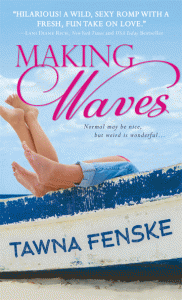 MAKING WAVES, Tawna’s first book (but clearly not destined to be her last) came out earlier this year. I’ll confess, the original reason I ordered the book was because we both belong to the same online group, and I was trying to be supportive. So you can imagine my amazement when the book knocked my socks off. I swear, I was laughing by page 6 (the Jell-O salad from hell…that’s all I’m saying) and I didn’t stop until the last page.
MAKING WAVES, Tawna’s first book (but clearly not destined to be her last) came out earlier this year. I’ll confess, the original reason I ordered the book was because we both belong to the same online group, and I was trying to be supportive. So you can imagine my amazement when the book knocked my socks off. I swear, I was laughing by page 6 (the Jell-O salad from hell…that’s all I’m saying) and I didn’t stop until the last page.
